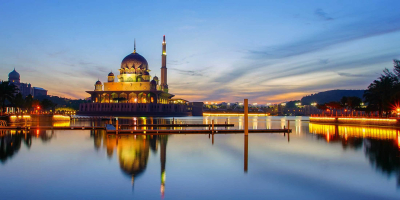Top 6 Norwegian Culture, Customs and Etiquette
Should you remove your shoes when visiting friends? Should you greet those on elevators with a smile? When thinking about the dos and don'ts in your own ... read more...nation, these questions might not seem like the most obvious ones, but things that you might not even consider at home can have a major impact abroad. Here is a list of Norwegian Culture, Customs and Etiquette.
-
On a map, Norway is easily recognized due to its unique wavy shoreline, which resembles an old kelp fan. Fish frequently takes center stage in Norwegian cuisine due to the country's connection to the sea, which includes Viking longships, contemporary trawlers, and the small seaside settlements that dot its coastline. That pickled herring is the star of the breakfast show.
Breakfast might have included a bowl of porridge with a scattering of salted herring on top in place of raisins if you had traveled to Norway in the 1800s. This specific fish has been so closely associated with the Norwegians for so long that it is even referenced in the manuscript of the Kings' Saga from the thirteenth century. In the 19th century, the export of herring played a significant role in Norway's development into a world-class capitalist nation.
Herring is frequently salted and pickled at home and is regarded as a "everyday fish" in Norway. Pickling and other preservation techniques are a sour and delectable part of Norwegian culture since long, arduous winters are a way of life in a nation that borders the Arctic Circle. Typically, the pickling mixture is sweet and sour, and the herring strips that result are juicy and flavorful.In Norwegian families, the mason jar of herring is frequently accompanied with smoked salmon, caviar in a tube, and the beloved Brunost block for the traditional sit-down breakfast (brown cheese).
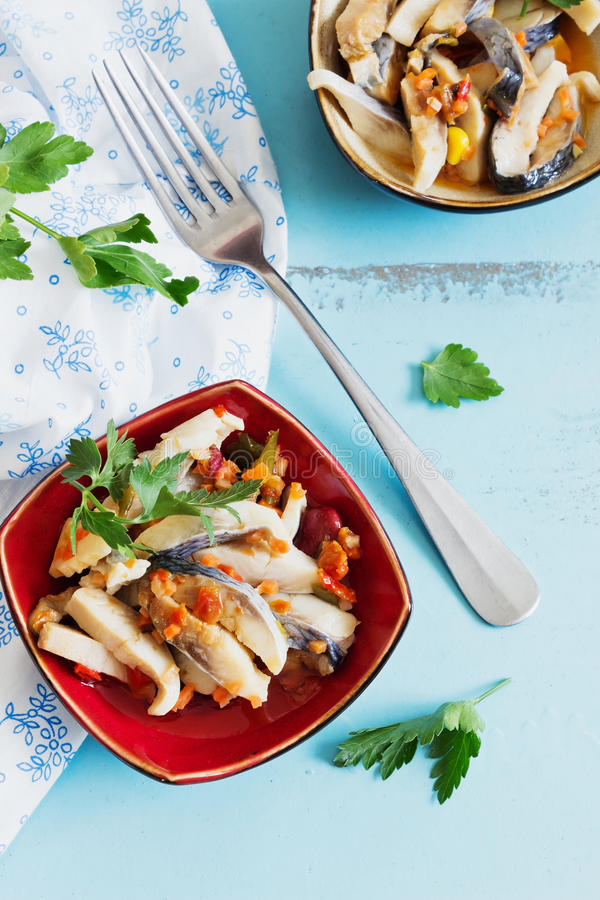
https://www.dreamstime.com 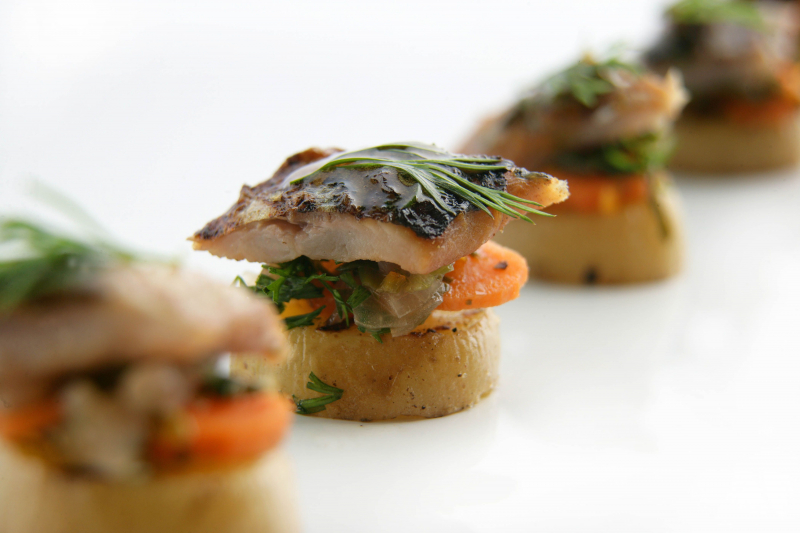
https://www.pinterest.com/ -
The only native population in Europe is the Sami. They have herded reindeer inside the Arctic Circle for thousands of years and are tough survival. It is not unusual in their culture for kids as young as six to assist in managing the massive, untamed herds. The Sami people now have their own parliament in their capital city of Karasjok and are both citizens of Norway and a distinct ethnic group, with self-government in the county of Finnmark. Only about 4% of the 50,000-person population regularly practices the herding lifestyle. However, contemporary Sami and Norwegian culture still heavily incorporates traditional yoiks.
The Sami yoik (or joik), a vocal ululation, is sometimes linked to Native American chanting and is said to be one of the continent's oldest continuously existing musical traditions. The compositions are extremely personal to the joiker and are seen as representing their subject matter more accurately than being mere representations of it. Sami folklore claims that Arctic fairy folk gave the expertise to their people.
The integration of the Sami joiker style with other contemporary musical genres, such as trance, is growing in popularity as the younger generation of Sami joikers continues to evolve the style from its original mumbling form. The modern yoik is a well-known symbol for the unique way of life of the Sami because cultural tourism is so vital to them.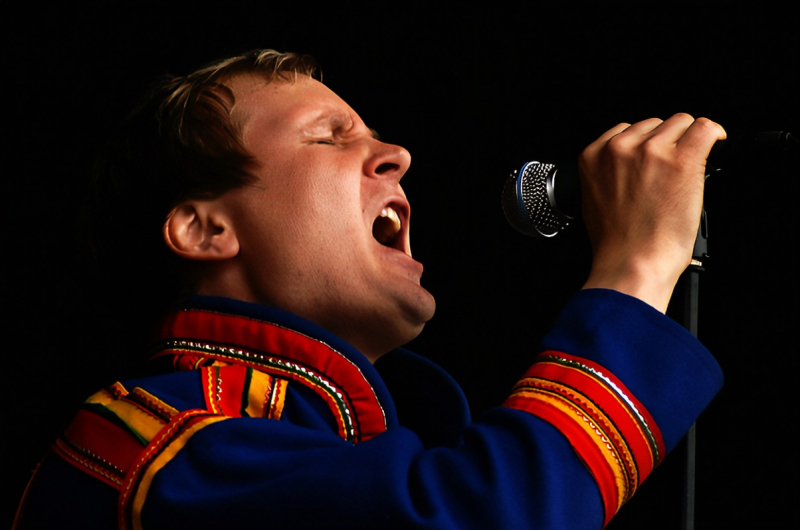
http://puresocialshares.com 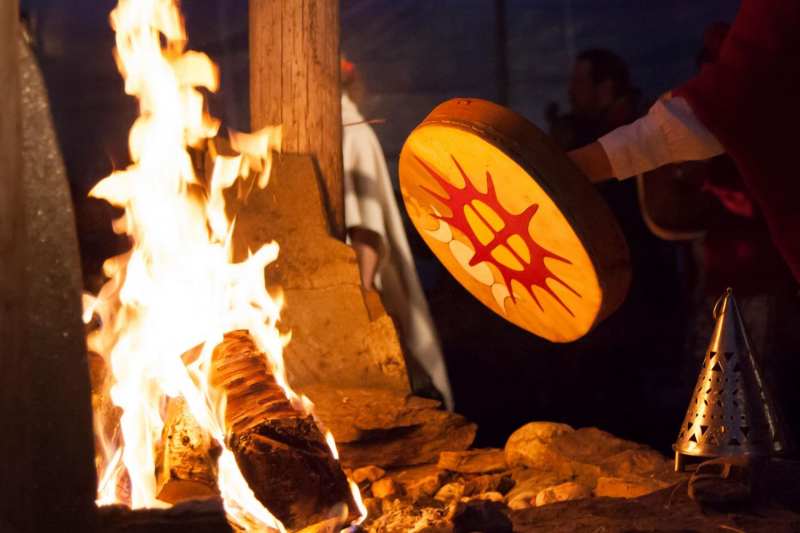
https://www.visitnarvik.com/ -
Typically, invitations are made verbally. Both in professional and social settings, Norwegians are on time. Consult your hosts about the appropriate attire. Offer to assist the hostess with the meal's preparation or cleanup afterward. Don't talk about business. Norwegians keep their personal and professional life apart. Answer any invitation. In contrast to what one might anticipate from an egalitarian and easygoing culture, table manners are more formal.
While dining, use your left hand for the fork and your right hand for the knife. Wait till the hostess starts to eat before starting. Utensils are used to eat the majority of meals, including sandwiches. When you're done eating, lay your knife and fork across your plate with their handles pointing to the right and their prongs downward.
The hostess is thanked on behalf of the other guests by the male guest of honor, who is often seated to the hostess' left (thanks for the meal). The first toast is made by the host after a brief speech. During the meal, toast the host or hostess. Toasts may be made by women. Beer is not used to make toasts; instead, alcoholic beverages are. When someone is being toasted, raise your glass, turn to face them, take a sip, and then glance at them once more before setting it back on the table. After a toast, women must first put their cups down.
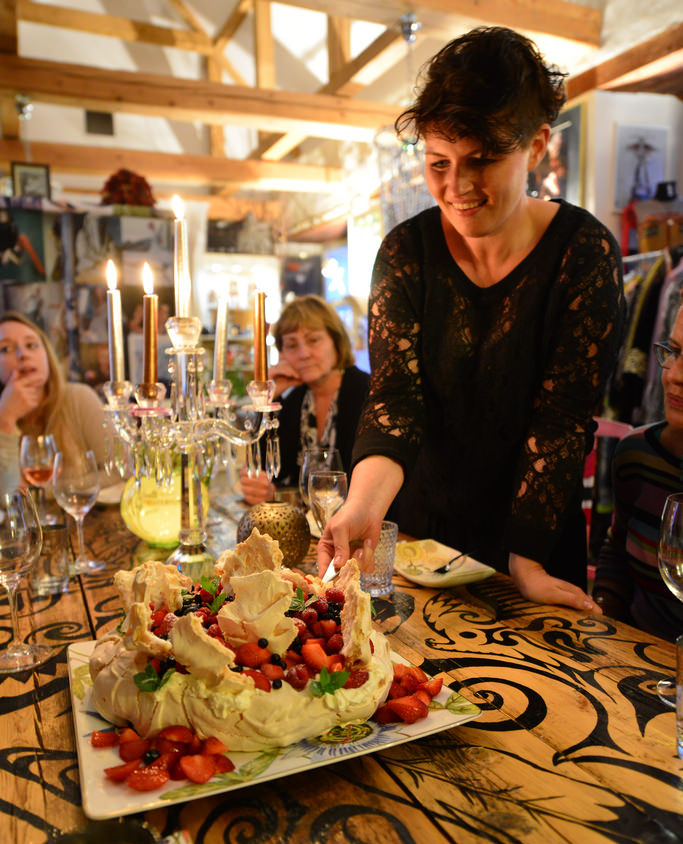
https://www.atozworldfood.com/ 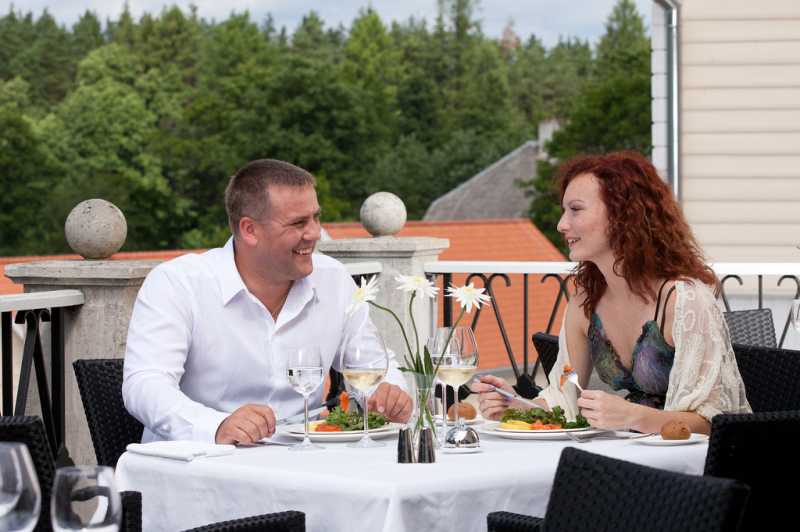
https://www.atozworldfood.com/ -
A firm handshake, direct eye contact, and a grin are used in informal greetings. Norwegians are egalitarian and informal; they frequently merely use their first name when introducing themselves. People occasionally use the honorific titles "Herr" (Mr.) or "Fru" (Mrs.) along with their last name.
Although most individuals will start with this, you can wait until you're invited before switching to first names. Shake hands and say good-bye individually when entering or departing. Shake hands with folks in the order that you receive them. Pronounced twice, exactly like "hello." The Norwegian greeting is hei hei, and it can be used in both formal and casual contexts (such as when a bank staff greets you) (like a friend meeting you on the street).
Takk for sist (the r is silent), one of the most perplexing words in Norwegian, literally translates as "thanks for the last," which means "thanks for final time." The perplexing aspect? If you have previously met, your Norwegian friends and acquaintances will tell you that when you meet. It's just a way of saying "good to see you again," but it will take some getting accustomed to for visitors before they stop attempting to recall the precise reason why someone is appreciative of them.

https://communityindicators.net/ 
https://careertrend.com/ -
Bring flowers, chocolates, pastries, wine, or imported spirits to the hostess if you are welcomed to a Norwegian's home. Sending flowers the day before a dinner gathering will allow them to be exhibited that night. Don't send white flowers, lilies, or carnations because they are typically used during funerals.
Give no wreaths, not even at Christmas. Give flowers in odd numbers only. Having a houseplant during the winter is welcome. Wildflower bouquets that have just been picked are always welcome. When received, gifts are opened.
However, Old Norwegian Gulating law stipulated that a gift must be reciprocated with another present of equal value. In the old Scandinavian civilization, trades and contracts took place in the form of presents, which were voluntary, but were expected to be reciprocated. The law no longer dictates gift-giving practice in today's modern society, but there are several conventions that are frequently followed in Norway.
In Norway, giving gifts is typically accepted. Every holiday presents a chance for liberal gift-giving among the Norwegians. Every significant holiday is celebrated at home with families and close relatives by the strongly family-oriented Norwegians.
Here, hosting dinner parties is a common method to socialize. On the morning of the dinner party, it is frequently a good idea to give flowers to the host or hostess so they may arrange them for the evening. In the winter, a house plant is also welcome, and a bouquet of wildflowers is always welcome. When a gift is opened, it is usually still wrapped.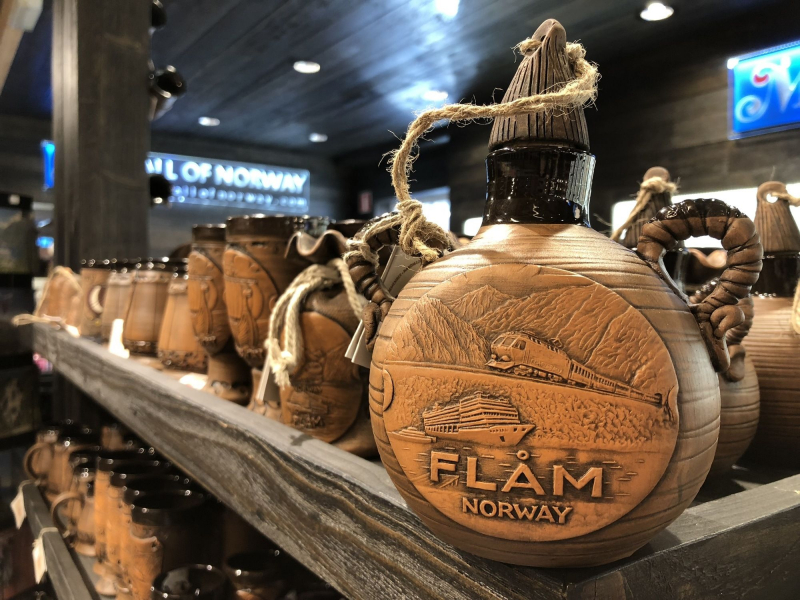
https://www.pinterest.com/ 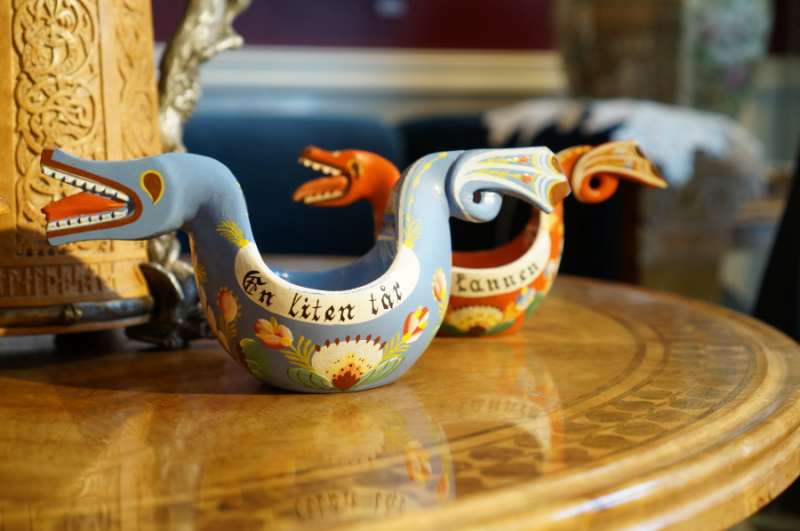
https://souvenirfinder.com/ -
In certain ways, Norwegian culture is quite informal, and unless possibly in official meetings, Norwegians typically simply use their first names to address one another. However, the informal culture is not comparable to that in southern Europe; being late for meetings, speaking loudly, getting too personal with strangers, and losing your temper are all seen as disrespectful.
At dinners at someone else's house, you might get away with being "fashionably late," but this is not encouraged and should be kept to a maximum of 15 minutes. Taking off your shoes is typical while entering a Norwegian home, especially during the winter.
Another stereotype of Norwegians is their semblance of nationalism. It is typical to fly the flag on public holidays and use it in private festivities (such weddings and anniversaries). Violating the flag's regulations is discouraged.
The majority of Norwegians have positive things to say about their nation, especially when discussing things like sports, nature, and the nation's prosperity. The celebrations on May 17, which is the nation's constitution day, can be a little overwhelming for visitors because the country is draped in flags and people dress to the nines.
Norwegian patriotism, however, is typically only a statement of gratitude for being a part of a prosperous society; it is in no way chauvinistic or combative. However, unless you are certain that they will be warmly received, you should avoid making jokes about the patriotism of the Norwegian people. On the day of the constitution, dress up and attempt to greet everyone you come across with gratulerer med dagen (literally, "congratulations with the day"). Even if you are not at all Norwegian, you will likely receive the same greeting and notice many smiles.
Norwegians take pride in the fact that families and schoolchildren participate in the parades on Constitution Day rather than military personnel.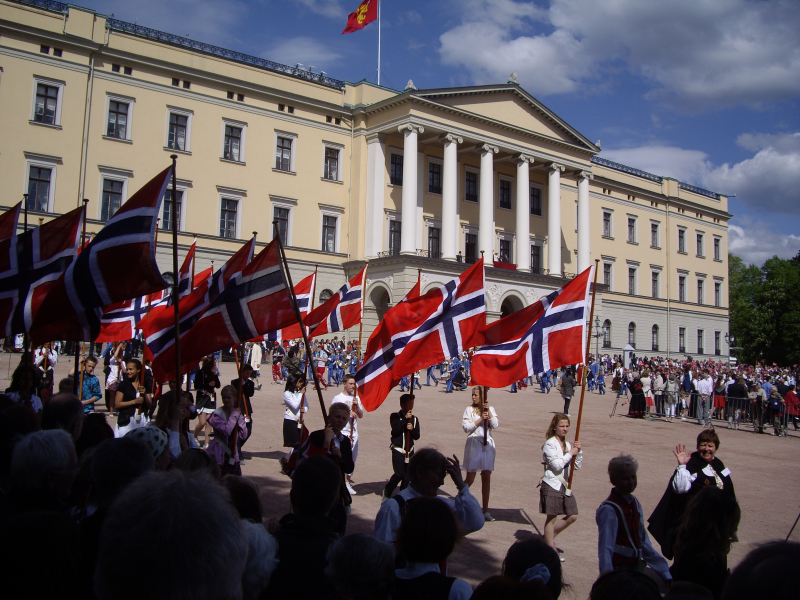
http://www.worldmomsblog.com/ 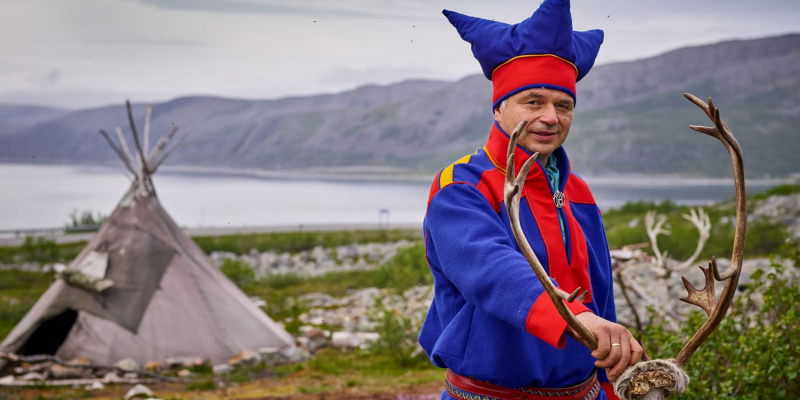
https://www.hurtigruten.com.au


























